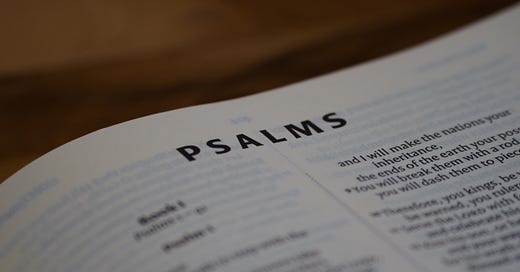"I take refuge in you"
My early research career focused upon clinical psychology. My doctoral research was about the effectiveness of cognitive-behavioral therapy in the treatment of anger. Starting out as an assistant professor, I also did research on the comorbidity between anxiety and depression.
Around 2003, I started to turn my attention toward the psychology of religion, which began the slow journey into the person you're reading today, a psychologist frequently mistaken for a theologian. Most people don't realize my day job is teaching research and statistics classes.
My first foray in the psychology of religion literature concerned attachment to God.
Attachment theory builds upon the pioneering theoretical work of John Bowlby and the laboratory work of Mary Ainsworth. Attachment theory concerns the nature and formation of the close affectional bond between child and caregiver. Later research began to examine the dynamics of the attachment bond in adulthood love relationships.
According to Ainsworth, the attachment bond is characterized by four features:
Proximity Maintenance: We wish to be near or close to our attachment figure.
Separation Anxiety: When separated from an attachment figure we experience distress.
Secure Base of Exploration: The attachment figure gives us courage and confidence to explore and take risks.
Haven of Safety: When hurt, fearful, or distressed we go to the attachment figure for protection, care, and comfort.
Following the lead of researchers like Lee Kirkpatrick, psychologists began to study how our relationship with God can be described as an attachment bond. This is easy to see as you look at the list above and ponder the imagery of the Psalms. Over and over again in the Psalms, we find the attachment bond showing up. Today, in Psalm 16 we read "I take refuge in you."
God is our haven of safety.




For many, God and his creation are the things we attempt to seek refuge from. Adam and Eve's reaction following The Fall is the prototype for humanity's future dealings with God: hide, cover up, and make excuses.
In my own life, alcohol was a refuge from shame and anxiety. I lacked faith God could overlook my flaws. At least alcohol could blot out my consciousness of my inadequacy.
The cross is the best demonstration of God's determination to maintain a connection with us. He himself seeks those in hiding, covers the naked, and provides the justification for the guilty. He removed every barrier between us and he adopted us as true children.
It is interesting to talk about attachment this way. Does God really come to rescue those oppressed, the lonely, the sick, and the victims of violence and slavery? I understand that in one's mind there may be refuge but in reality in this material world, where is that protector?